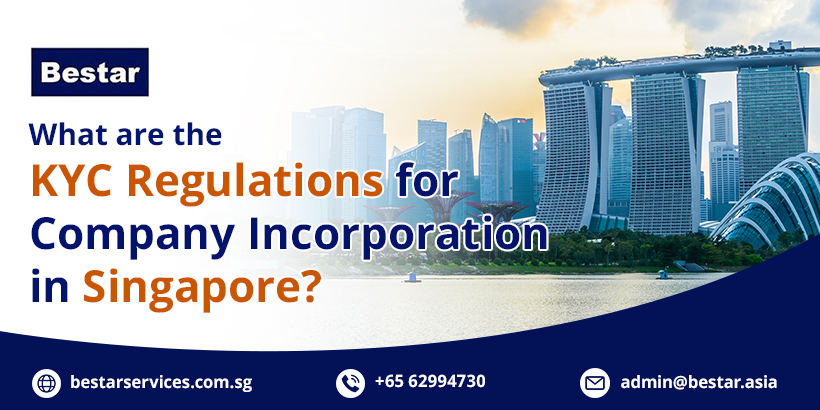Singapore has emerged as one of the most attractive global destinations for setting up businesses and generating substantial revenue. Its thriving economy continues to draw investors, companies, and entrepreneurs who are eager to establish their presence in this dynamic market.
Thanks to the strong support from the Singapore Government, the process of starting a business has become straightforward for foreign investors. With the Singapore Company Incorporation & Registration process now simpler than ever, more investors are taking advantage of the opportunity to establish business structures and formalize shareholder arrangements.
To maintain transparency and protect the financial system, the Accounting and Corporate Regulatory Authority of Singapore (ACRA), in collaboration with the Financial Action Task Force (FATF), has introduced a series of regulations. These measures are designed to prevent misuse of business structures, curb illicit financial activity, and uphold professional standards for company formation and operations in Singapore.
In this blog, we will walk you through the key KYC regulations that every business must comply with when incorporating a company in Singapore.
KYC Requirements in Singapore
For Company Incorporation in Singapore, there are specific initial KYC (Know Your Customer) regulations developed & implemented by the Monetary Authority of Singapore (MAS) to ensure your identity is legitimate, valid, and transparent. The following documents are required prior to the screening process:
- A copy of the Company’s Memorandum & Articles of Association
- A copy of the Board of Directors Resolution
- A copy of the Business Profile
- Identification Proof that includes Valid IDs, Shareholders & Company Members’ Nationality, Date of Birth, and Residence)
- Initial deposits using a Singapore bank cheque
- Bank Statement Verification to verify user income
- Employment Status Confirmation with the user’s consent
- Certification of ID Documents via Notary or by Lawyers
Screening Process
It is recommended to hire a corporate service provider as they will evaluate & identify your customers. And they will also check your background & recent transactions in case of the following scenarios:
- If the capital is going in & out of the company’s records
- Clients tolerate unusual transactions
- Atypical or Complex Company Structure
- Meetings Avoidance
- Politically Exposed Person (PEP) clients
At Bestar Services, we have highly qualified & professional Corporate Business Consultants competent in the screening process for KYC Regulations.
Periodically Monitoring & Recordkeeping
After verification of all the essential documents & requirements, your hired corporate service provider will monitor customer transactions, including evaluating your business history & risk profile, if required.
At Bestar Services, our professional Corporate Business Consultants scrutinize the highest risks.
For the monitoring, we suggest maintaining copies of information and all supporting documents about clients’ identities at least five years from the termination date.
Non-Compliance Penalties
The ACRA has the authorization to investigate a company/business on the failure to fulfillment of the KYC regulations. If the company is found suspected of non-compliance, it can face the following penalties:
- Imposition of Heavy Financial Fines
- Business Operations Adversely affected
- Access Denial with ACRA’s Bizfile business interface
- Suspension or Cancellation of the company’s registration with ACRA
By hiring a Corporate Business Advisory Consultant from us, you will comply with the KYC Regulations and be on the right side of the law.
Introduction of Laws for KYC Regulations
With KYC Regulations in Singapore mitigating illegal business transactions and non-compliance to the system, specific laws will be imposed on individuals & investors found guilty. They will receive severe consequences, and the penalty will vary on the evidence gathered. The following are laws in place for Non-Compliance with KYC Regulations:
- Singapore Company Constitution
- The ACRA Act
- The Terrorism Act
- The Corruption, Drug Trafficking, and Serious Crimes Act
- And other legislation related to arrest on charges of money laundering or terrorism funding
Singapore Digital Identity System
Singapore has one of the outstanding Digital Identity Systems in the world, which entirely relies on mobile apps & biometric data to make the onboarding process quicker. Singapore
Citizens can use their Singpass app to sign up for private & government sector services. The Singpass app is connected to Myinfo, leading to the remote signing of the documents.
There is also a step beyond customer identification, which are the general KYC rules, such as customer monitoring.
If the customer is on the Politically Exposed Person (PEP) list or poses a significant threat for a money laundering case, then advanced due diligence is required that includes the following:
- Change in Transaction Activities
- Changes in Standard Institution Documents
- Lack of proper identification information
- Change in relations with the customer
Conclusion
After reading the blog, you will be clear about KYC Regulations in Singapore, their requirements, screening process, periodic monitoring & recordkeeping, non-compliance penalties, laws in place, and Singapore’s digital identity system. However, if you have any questions or need additional clarification, feel free to contact us.
At Bestar Services, we provide comprehensive Business & Company Incorporation & Registration Services in Singapore. Partner with one of the leading Corporate Service Providers in Singapore to stay on the legal side of the law. We have helped 100s companies set up their business in Singapore and guided them through KYC Registration and Regulations.
Our highly experienced & skilled Business Advisory Consultant will assist you with every step, from gathering documents to paperwork, to ensure you seamlessly incorporate and register your company in Singapore. And also with KYC Regulations.
For a consultation with our Business Advisory Consultant, contact us via email at admin@bestar.asia or call at +65 62994730.
Refer to our other blog, “A Guide to company incorporation and registration in Singapore” for your reference.







